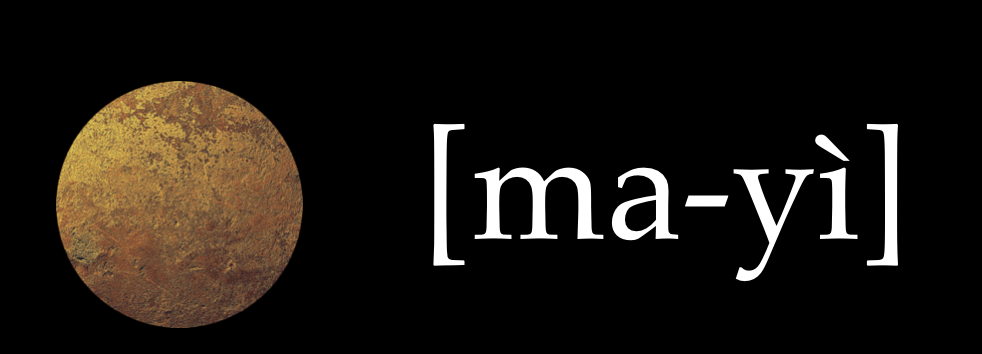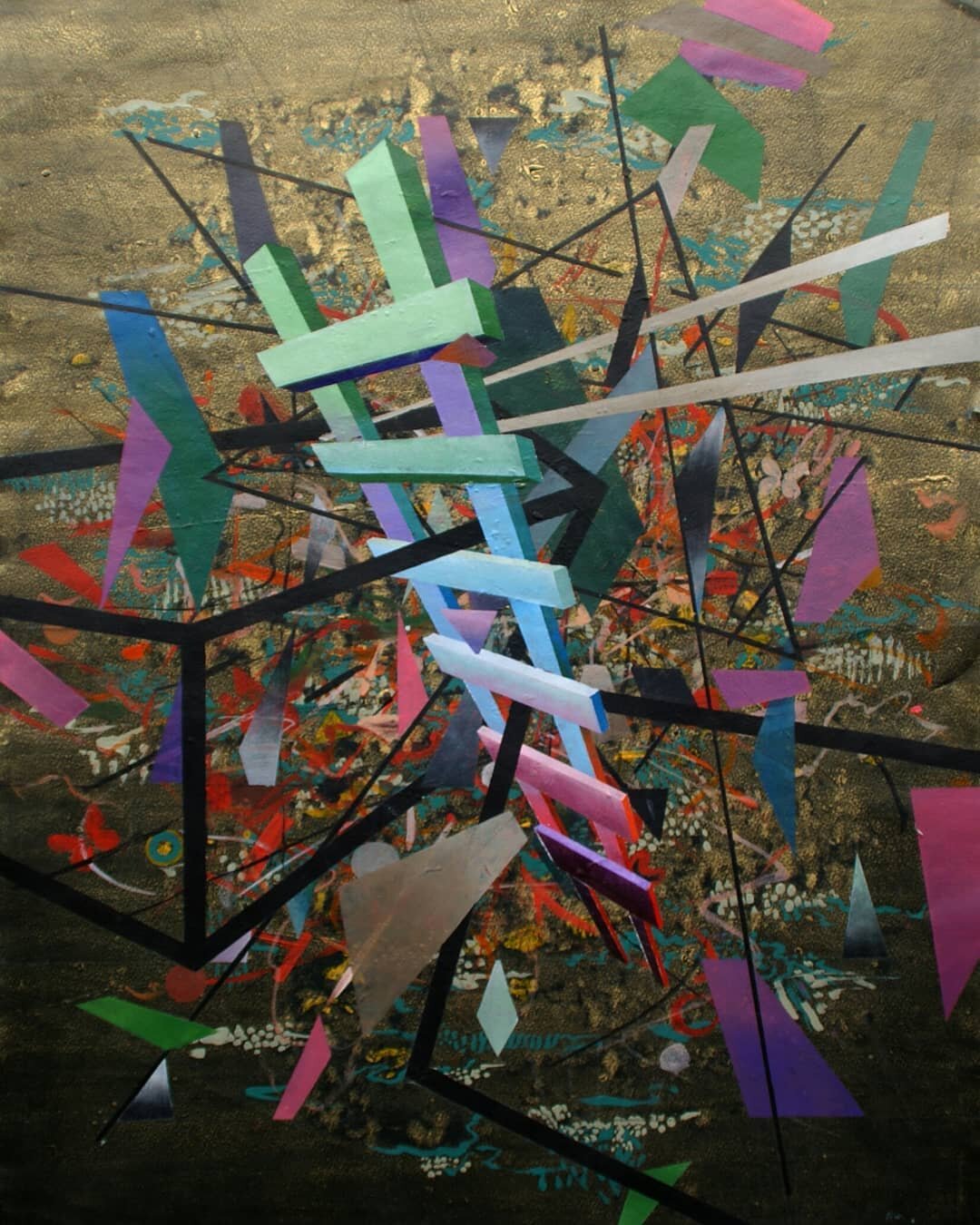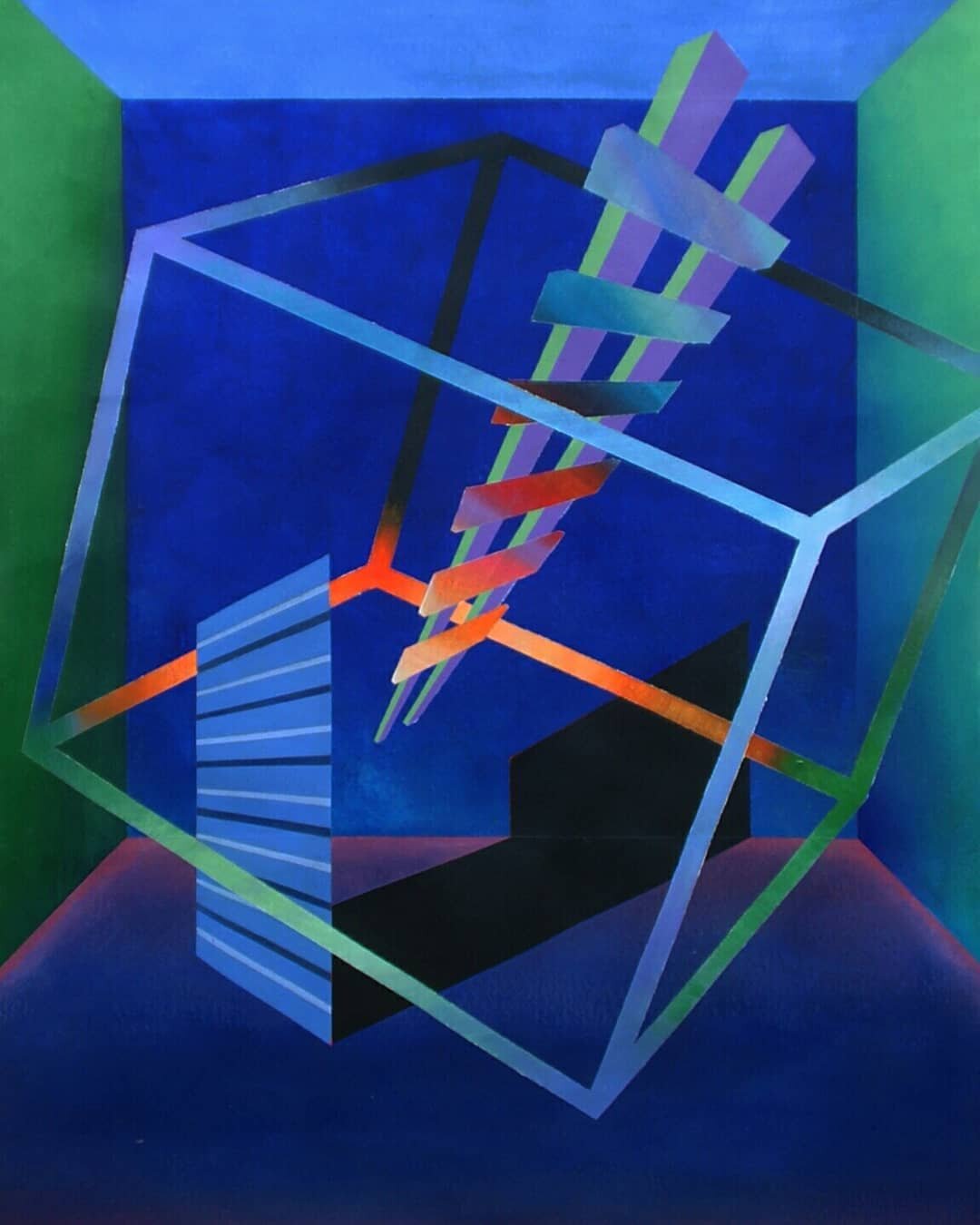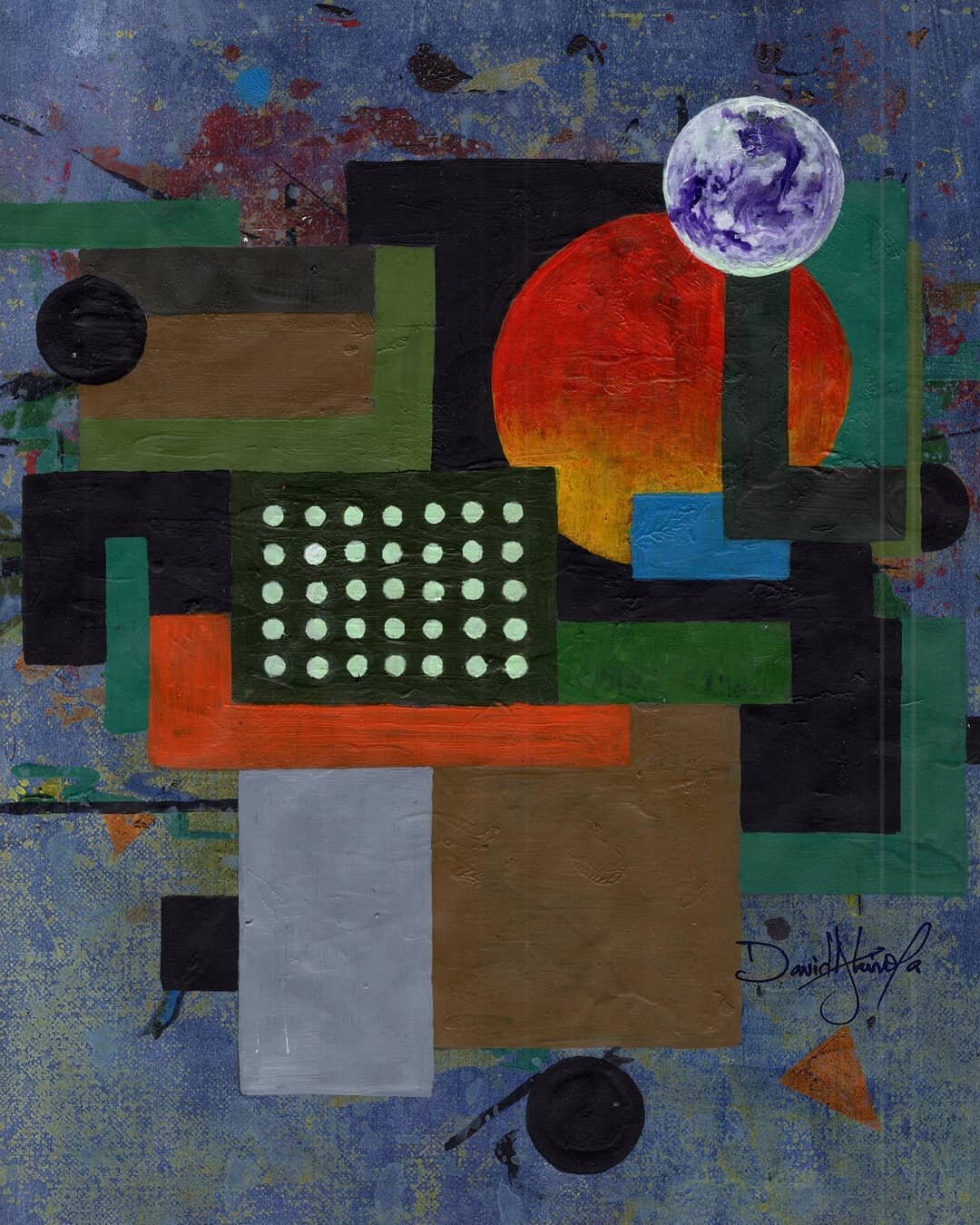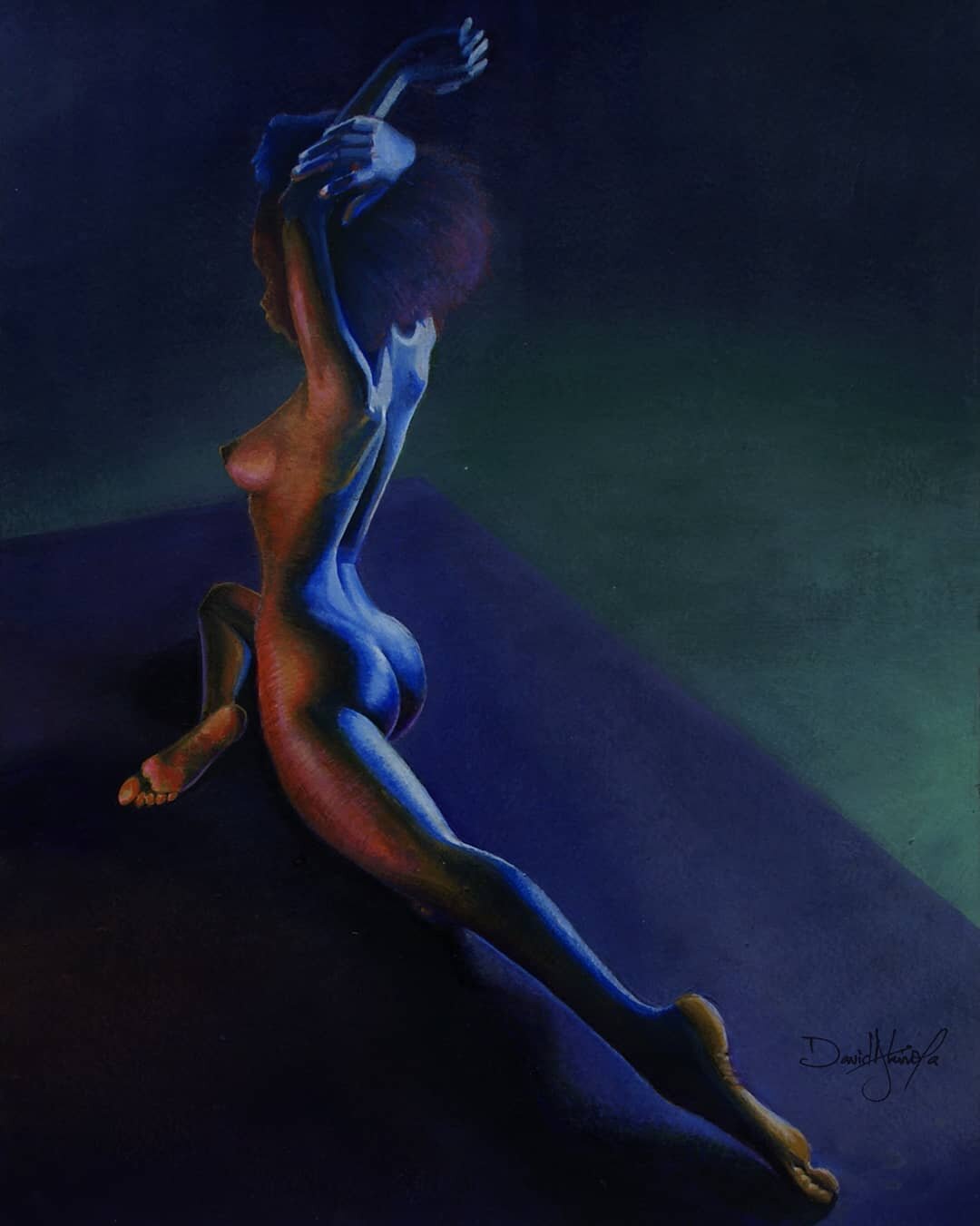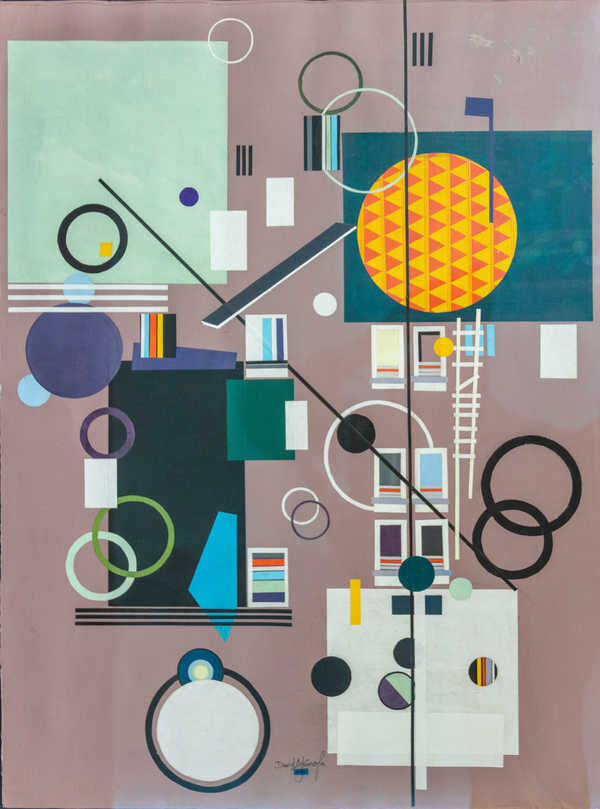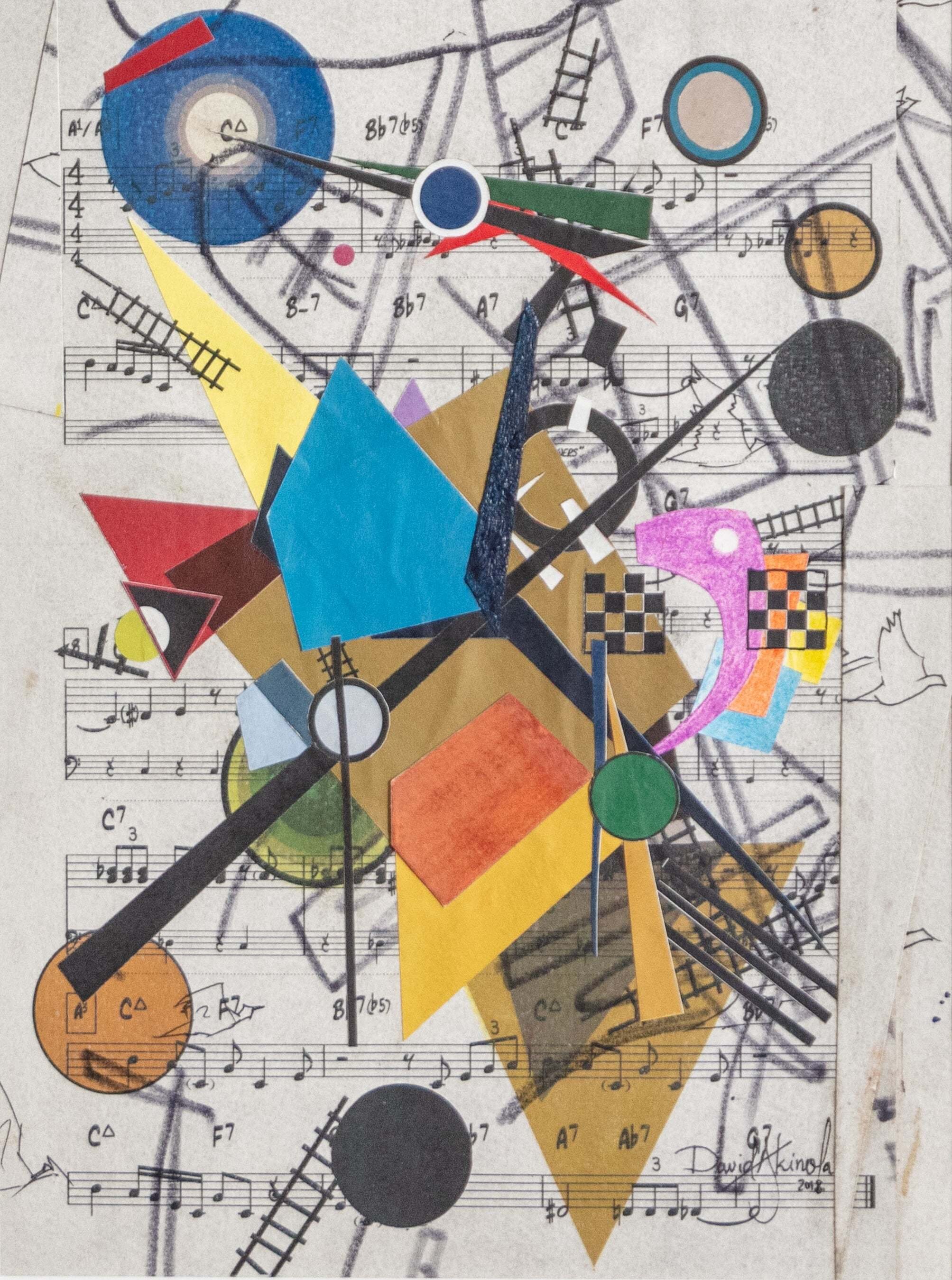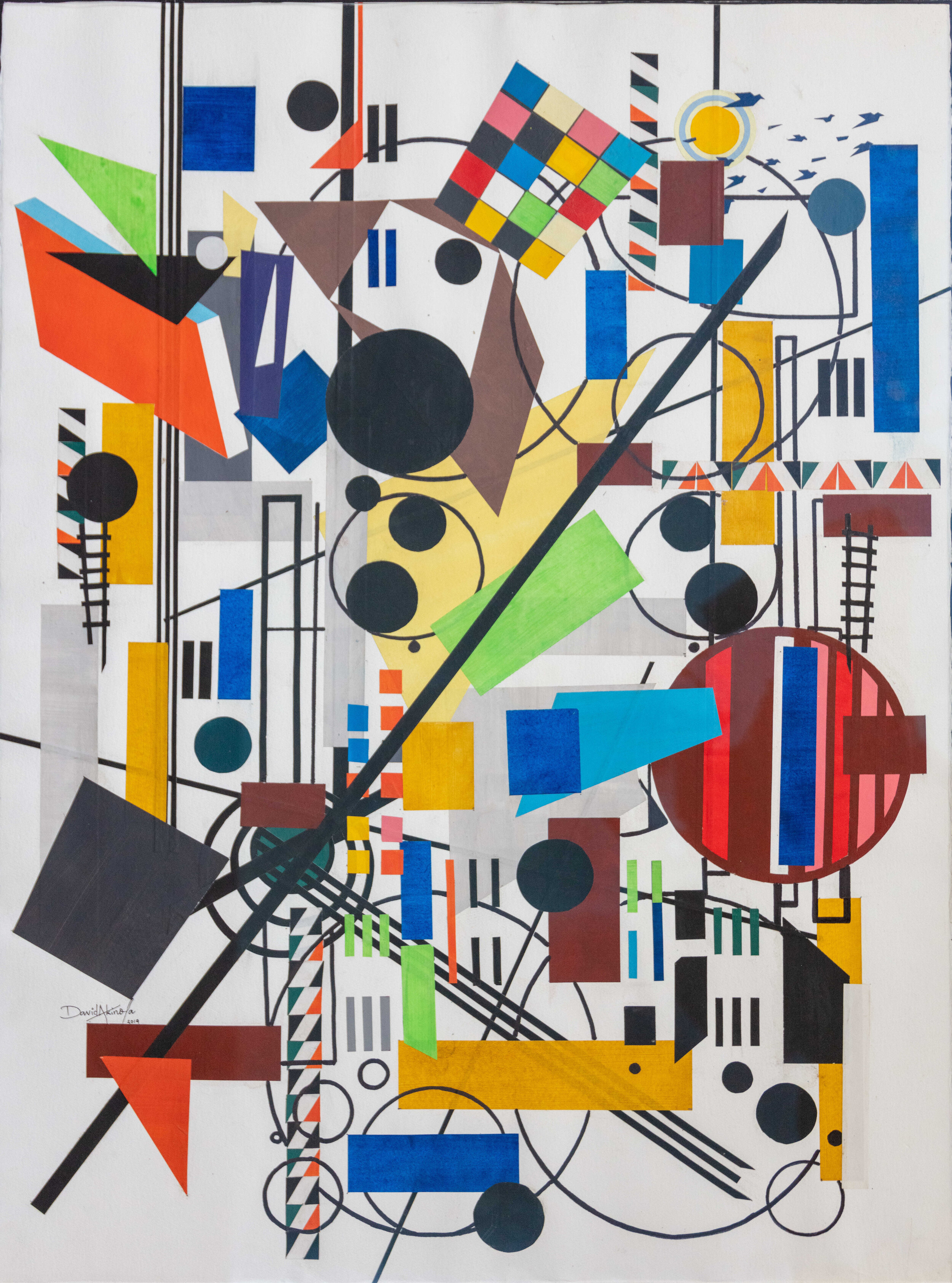Exploring womanhood with Azania FOREST
Is there one way to describe Azania Forest and her work ? - Is this actually necessary to do so ? - The self taught photographer and mix media artist takes us on a unique trip to explore the diversity of her world.
Is there one way to describe Azania Forest and her work ? - Is this actually necessary to do so ? - The self taught photographer and mix media artist takes us on a unique trip to explore the diversity of her world. The South African artist is part of a vibrant generation of creatives who creates the magic by piling up inspirations, influences and identities. Navigating through her rich cultural heritage within a modern society, she explores the deep meaning of being a black woman and its stigmas but also the single representation of masculinity : strong, hard, violent sometimes. An invitation to a vibrant and unapologetic vision starting with the name she has given herself :
Azania FOREST : I went with this name because Azania is a Hebrew name meaning ‘God listens’, it is also a name that is used to refer to some portions of Southern Africa. I resonate with this name because I come from Southern Africa and I believe that I am guided by the God of my forefathers. This name reminds me of where I come from and where I am going. ‘Forest’ reinforces ‘Azania’ because a forest is home to many living creatures, it is not man made and it is filled with the wonders of life and nature. Azania Forest is a name that means surrounding to God because I am not in control, it reminds me of the people that got me here and the person I am constantly becoming.
M.A : Is it important for you to have an alias ?
A.F : Not necessarily, I love my legal name, but I also love the name that I have given myself. I embrace the name that my parents gave me, and I also embrace the name I have given myself. It was an empowering act, a moment where I validated the relationship I have with myself.
M.A : You have been exploring with photography but also painting, collage and more recently clothing, what is guiding you ?
A.F : I could say that I am multifaceted, I do feel that I have been endowed with the ability to express my thoughts through various mediums. I am an aspiring visual artist and trained fashion designer. I also work as a fashion stylist and photographer. I approach all of these fields with intuition. I always have a story to tell and sometimes the best way to tell it may be through fashion instead of painting, sometimes the story needs me to paint instead. Each medium serves a different story.
M.A : How confident have you been about taking this road ?
A.F : I have always had an affinity for arts since childhood. I loved sounds, colours, shapes and scents. I have always been a more sensory person and I understand information through symbolism and figurative language. My confidence comes from understanding that this is how my brain works and art is my way of communication.
” Being a black woman is easy, but it becomes difficult because of the society we live in. Our experiences collectively are layered, complex and nuanced. I want us to be represented more, as humanely as possible.“
M.A : Whether it is collages, clothes, photographs, your work suggests lots of exploration and expression of identity, especially as a woman ?
A.F : Yes it does. Being a black woman is easy, but it becomes difficult because of the society we live in. Our experiences collectively are layered, complex and nuanced. I want us to be represented more, as humanely as possible. I explore this identity because I want the lives of black women to be better, I want our voices to be heard and stories to be told.
M.A : What about the Mbona Lisa series and your series about the stigma of menstruate, what was your outlook on this ?
A.F : Mbona Lisa is an ongoing body of work, however, I have decided to be slow with its process because I want to articulate her story in a substantial way. The Mbona Lisa series speaks to the parallels of black land ownership and black women having autonomy over their identities and bodies. Land is a resource that provides food and space for shelter, in the same breadth, women are mostly imposed with the task of mothering and housing children. Mbona Lisa wishes to question these imposed roles of womanhood and how women define themselves. Mbona Lisa also alludes to the Mona Lisa by Leonardo Da Vinci, who was considered a ‘virtuous’ woman. It speaks to colonial impositions of what womanhood entails.
Menstrual Purity (the series was created in 2017) speaks on the process of how an unfertilised egg dies, which leads to menstruation. It is illogical how bodies that menstruate, mostly women, have been made to carry the stigma of non-cleanliness whereas this a biological process that can symbolise the process of death and re-birth. There is an underlying power in understanding this process as a way of looking at life and seasons. There are seasons of release and seasons of intake, seasons of movement and rest. I wish to eventually sell the portraits and use the profits to help women and girls experiencing period poverty.
M.A : Is it still hard to be a woman ?
A.F : I don’t believe that it is hard to be a woman, it is the world that makes our living experiences hard. I want women to be proud of being who they are despite the external injustices, we are more than our struggles.
M.A : Still there is poetry in those shots, how would you define your style ?
A.F : My style and artistic practice is inspired by my identity as an African and as a woman. I do photographic portraiture and I have recently gone into traditional art whilst maintaining portraiture. I want black people to document themselves and create archives for future generations because our history has mostly been manipulated and somewhat erased. My style is self-documentation and the construction of one’s identity.
M.A : …and this is not limited to womanhood.
A.F : Soft Masculinity is inspired by the position of black men in South Africa, they are the biggest group of perpetrators regarding gender based violence and rape. In this work I wish to deconstruct how patriarchy is a double edged sword for men and how it essentially harms them in the greater scheme of things. Which is why I portrayed them in a way that is abstract from patriarchal behaviour – intimate and ‘soft’. I wish for them to do self introspection as to why vulnerability and intimacy amongst each other is viewed as a weakness. Soft Masculinity is a call for men to question internalised patriarchal behaviour and how that leads to misogyny.
As she likes exploring diverse paths, Azania is also one half of Camagu Studio she founded with fellow artist and creative Lulama WOLF :
A.F : Camagu is a Xhosa word meaning ‘to honour’. Camagu Studio is a collaborative concept company founded by myself and Lulama Wolf. We are both visual creators and Camagu Studio is a space for us to explore our artistic practices. We wish to honour our heritage by archiving our cultural artefacts and documenting our present realities for future generations. We are aware of how fast and how Western the world is becoming, and our wish is to honour the people that brought us here and protect cultural practices that are rooted in the betterment of African people.
M.A : Where is your head this days ?
A.F : I am currently working on a fashion collection for my clothing line Lesego Seoketsa; and in the design process. It is an exciting part of my life because I love fashion as a medium of self expression. My team and I are researching ways to make our products environmentally sustainable and long lasting.
M.A : How have you been lately ? How has current global context affected you ?
A.F : The current pandemic is very difficult because I have to imagine different ways of working with people. As a photographer and stylist I now have to make sure that conditions are safe for working, and it causes anxiety because I don’t want anyone to be at risk. The lockdown has lead me to find new inspiration and different ways to create at home, which is why I have picked up painting. I am also shooting more self portraits in my backyard. Things have slowed down, however I cannot stop, I have no other choice but to continue working.
Interview by Mayi-Arts. All works are courtesy of Azania FOREST.
David Akinola : From Lagos to the Moon.
Raw, honest and lucid this is how we can describe David AKINOLA’s work, perfectly matching his views on life and society. We had a chat with the Zaria native aged 27 today. We discussed social order, uncertainty in our times and went up to the moon … and Elon Musk !
David AKINOLA in conversation with [ma-yì]
Raw, honest and lucid this is how we can describe David AKINOLA’s work, perfectly matching his views on life and society. We had a chat with the Zaria native aged 27 today. We discussed social order, uncertainty in our times and went up to the moon … and Elon Musk !
Before meeting with Akinola, we already sense that he is one of a kind. The Nigerian artist explores shapes and influences, navigates from the lucid to the underworld of consciousness to produce enigmatic canvases and drawings we are eager to discover the story. The first thing he confirms is his inborn calling for arts.
“I've always been interested in arts. I remember making Christmas decorations with my family as a child and really enjoying the process of creating things. He remembers. That’s how it started. My work is a reflection of thoughts, feelings and desires. I think it is supposed to be self explanatory, if we know what constitutes “African” and “arts”, we can start from there.”
David Akinola is ambivalent in his work, exploring recurring patterns : explosive shapes, and abstract constructs. To which he adds :
“I adore women and they in turn, inspire me a lot. The beauty and uniqueness I see or feel about the woman, that's what I try to depict.”
M.A : Another recurring theme and symbols we find fascinating through your work are the moon and the ladder… What is your relationship with those ?
D.A: There’s this darkness that’s been on earth for over a year now and I’m sure some of us felt it even though we may not have understood what was happening. 2020 simply came and started to explain some of it. So, I find the moon very inspiring in these dark times. The moon is light, it's beautiful. It's also a reminder for me that the sun is still around and will return tomorrow, because the moon reflects the sun’s light, right ? The ladder, for me, could be a way of reaching out – prayer, contemplations and so forth. There’s also the fantasy part, where I imagine escaping the earth, you know, there’s just too much going on, give me a break !
M.A : Actually the moon and the ladder have become prevalent and central in your Transitory series.
D.A: When I started, it was about confronting my mortality. The series is based on thoughts and contemplations…So, in these moments, I think of life as The ephemeral nature of life. I think of life’s inevitable highs and lows, losses and gains, ambition – moving up the corporate ladder, social ladder, moving up the ranks and other shared human concerns. Of course, while one is moving up, another is going down.
But, importantly, with the Transitory series, there were certain things I was aiming for : calmness, awe of the sublime, clarity… You know, a sense of proportion and a focus on what was really important. I could die today, what is really important ? I started with staircases, a lot of shapes, marks, the moon, could be the sun as well, but, you may notice as the series progressed, elements in the composition reduced.
For me now, it's about order, stillness, serenity, joy and light. I want some order and peace in the world… there’s too much chaos; there’s just too much sadness, I want joy ; so much confusion, darkness… I want light, clarity. That’s what these paintings give.
M.A : Lots of Symbolism and Futurism in there…
D.A: It is both. So sometimes I imagine a ladder into space. So Elon Musk can shut up (laughs)… Getting into space in the future would certainly be as easy as climbing a few steps, Yes ! And I don’t need to be another Nostradamus !
When back on the ground, Akinola engages in projects directly impacting his community. He has been part of RAI - Revolting Art Incubator funded by fellow artist Jumoke Sanwo - regrouping various artists.
D.A: I used to be artistic director. Before that I was the first artist to engage the space.
M.A : What happened ?
Many things. So the creative director, Jumoke Sanwo had a vision, turning a stairwell into an alternative space where artists can interact, experiment, create and so on. That happened. The incubator also helped me in management capacity – representing me sometimes… they also helped me with coaching and so forth. So it wasn’t just about the art, but the artist as well. So, many good things happened.
D.A: In my immediate circle, Everyone is doing what they can ; to stay safe, to create, to explore other means of reaching the audience – virtually for example ; as well as encourage each other through these somewhat lonely tough times, thanks to self isolation and social distancing.
Difficulties is also part of many artists daily reality which in turn have to turn alternative and sometimes drastic paths.
D.A: There are challenges around getting materials, Most of what I use has to be imported. Many foreign manufacturers and supply stores don't ship to Nigeria, perhaps because there are so many government policies and hurdles that it makes it difficult and expensive…
Online would've been a great place, but policies also block online international transactions. So, in many cases, I have to use middlemen, so costs go, way up.
The Naira also continues to fall, so costs continue to go further up. Adding these costs to already expensive materials... there's the challenge. Also, there are also challenges around having an enabling environment to work. It’s part of why, many times, artists would have to travel out.
With his restless intellect and creativity, Akinola is already on board for new ventures.
“ So I’m exploring aggression in us humans and how this aggression reflects in our strategy for example. The need to kill, destroy; the joy in seeing the mighty fall, so another can rise ; moving up the ladder by stepping on people or by using other machiavellian tactics and so forth. There’s also a lot of chaos going on in the north and it's like there's more darkness coming for us Nigerians, and beyond, if in addition to the problems already on ground, we don’t solve the insecurity in the north. These are some ideas I’m currently busy with.”
Interview by MAYI ARTS.
